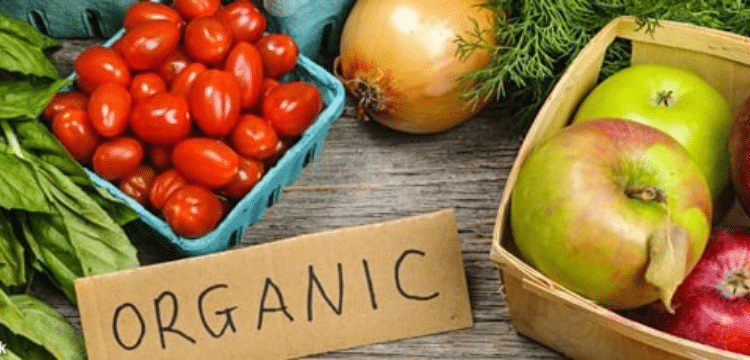[vc_row][vc_column][vc_column_text dp_text_size=”size-4″]Organic products have been gaining popularity over the last few years, and it’s easy to see why. Consumers are becoming increasingly aware of the health and environmental benefits of organic foods, as well as the positive effects on animal welfare. This has led to a surge in demand for organic products, as more and more people strive to make healthier and more eco-friendly choices. In this blog post, we’ll discuss the reasons why everyone is going crazy for organic products and why they’re worth investing in.
They’re Healthier for You
Organic products are healthier for you than non-organic products because they are free from potentially harmful pesticides and fertilizers. Organic produce is grown without the use of synthetic fertilizers, antibiotics, hormones, and genetically modified organisms (GMOs). Organic livestock is raised without the use of growth hormones or antibiotics. In addition to being free from potentially dangerous chemicals, organic food is often higher in nutrients such as antioxidants and vitamins. Studies have shown that organic produce contains significantly higher levels of certain nutrients than conventional produce. Furthermore, organic foods are often fresher and last longer than their conventional counterparts. All of these benefits add up to make organic products a healthier choice for you and your family.
They’re Better for the Environment
Organic products are better for the environment because they reduce the amount of pollutants, pesticides, and chemical fertilizers used in their production. Organic farming is a much more sustainable approach to agriculture, as it does not rely on chemical inputs or synthetic fertilizers, which can deplete soil health and leach toxins into our water systems. Organic farms also focus on crop rotation and natural pest management, reducing the need for potentially hazardous chemicals. Furthermore, organic farms often support biodiversity and promote habitat conservation, helping to protect local wildlife and preserve natural ecosystems. Additionally, since organic farmers rely on natural methods to raise their crops, they don’t contribute to global warming like conventional farming does. In this way, organic products can help reduce your carbon footprint and benefit the environment.
They Taste Better
One of the biggest reasons why people are going crazy for organic products is because they simply taste better. Non-organic produce can often taste a little lackluster and dull in comparison to organic, which typically has much more flavor. This is due to the fact that organic produce is usually fresher and picked at its peak, when it’s the most ripe and full of flavor. Additionally, many organic products are grown using natural methods that emphasise flavour rather than yield or resistance to pests. Organic meats and dairy also tend to be much tastier since they don’t contain any hormones or antibiotics. If you’ve ever had organic fruits, vegetables, meats, or dairy, then you know just how delicious they can be!
They’re More Nutritious
Organic products are often more nutrient dense than their non-organic counterparts. This is because organic farming practices prioritize healthier soil, with an emphasis on soil fertility, meaning the soil retains more of its natural nutrients. This results in produce that is richer in vitamins, minerals, and antioxidants compared to conventionally grown produce. Studies have found that organic milk contains higher levels of omega-3 fatty acids than regular milk, and organic eggs contain more vitamins A and E. Additionally, organic crops tend to be higher in fibre and contain fewer pesticides and other chemical residues than their conventional counterparts. All of this adds up to organic food being not just tastier but more nutritious as well.
They’re Safer
Organic products are safer for us to consume than conventional products. This is because organic products are grown and produced without the use of synthetic pesticides, fertilizers, hormones, antibiotics, and other chemicals. These chemicals are often used in conventional farming methods, and when we consume them, they can be toxic and harmful to our health. Organic products don’t contain these chemicals, so they’re much safer for us to eat. In addition, organic farms must adhere to stricter regulations, which means that they’re held to a higher standard of safety and quality. So if you’re looking for a way to protect your health, going organic is one of the best ways to do it.
Organic vs. non-Organic
When comparing organic products to non-organic products, there are a number of factors that must be taken into consideration. On the one hand, organic products are grown without using any synthetic fertilizers or pesticides, and they contain fewer additives and preservatives. On the other hand, organic products are generally more expensive and harder to find than non-organic products.
Organic products are usually healthier for you than non-organic products. They typically contain higher levels of vitamins and minerals, as well as antioxidants and phytochemicals. They also tend to be lower in unhealthy fats, sodium, and added sugars. Since organic foods don’t contain synthetic fertilizers or pesticides, they have less exposure to potentially harmful chemicals.
Organic farming is also much better for the environment than traditional farming practices. Organic farming uses fewer resources, produces less pollution, and helps preserve biodiversity. In addition, organic farms are often managed using more sustainable practices, such as crop rotation and companion planting.
Organic products also often taste better than non-organic products. Without the use of artificial fertilizers and pesticides, organic produce has more time to develop its natural flavors. Plus, many consumers prefer the taste of organically grown fruits and vegetables to their conventional counterparts.
Finally, organic products may be safer than non-organic products. Since they don’t contain any synthetic chemicals or additives, they pose a lower risk of foodborne illness or allergies. Plus, many consumers trust that organic foods are produced in a humane and responsible manner.
In the end, it’s up to the consumer to decide which type of product they prefer. While organic products may be more expensive and harder to find, they offer numerous benefits that make them worth considering. Ultimately, making an informed decision about which type of product is best for you can help you make healthier, more eco-friendly choices for you and your family.
Final verdict
The bottom line is that organic products are better for you, better for the environment, and often taste better. They may also be more nutritious and safer than their non-organic counterparts. Ultimately, it is up to the consumer to decide whether or not the benefits of organic outweigh the higher cost. If you want to ensure that you are eating food that is as healthy and environmentally friendly as possible, then choosing organic is definitely the way to go.
[/vc_column_text][/vc_column][/vc_row]











